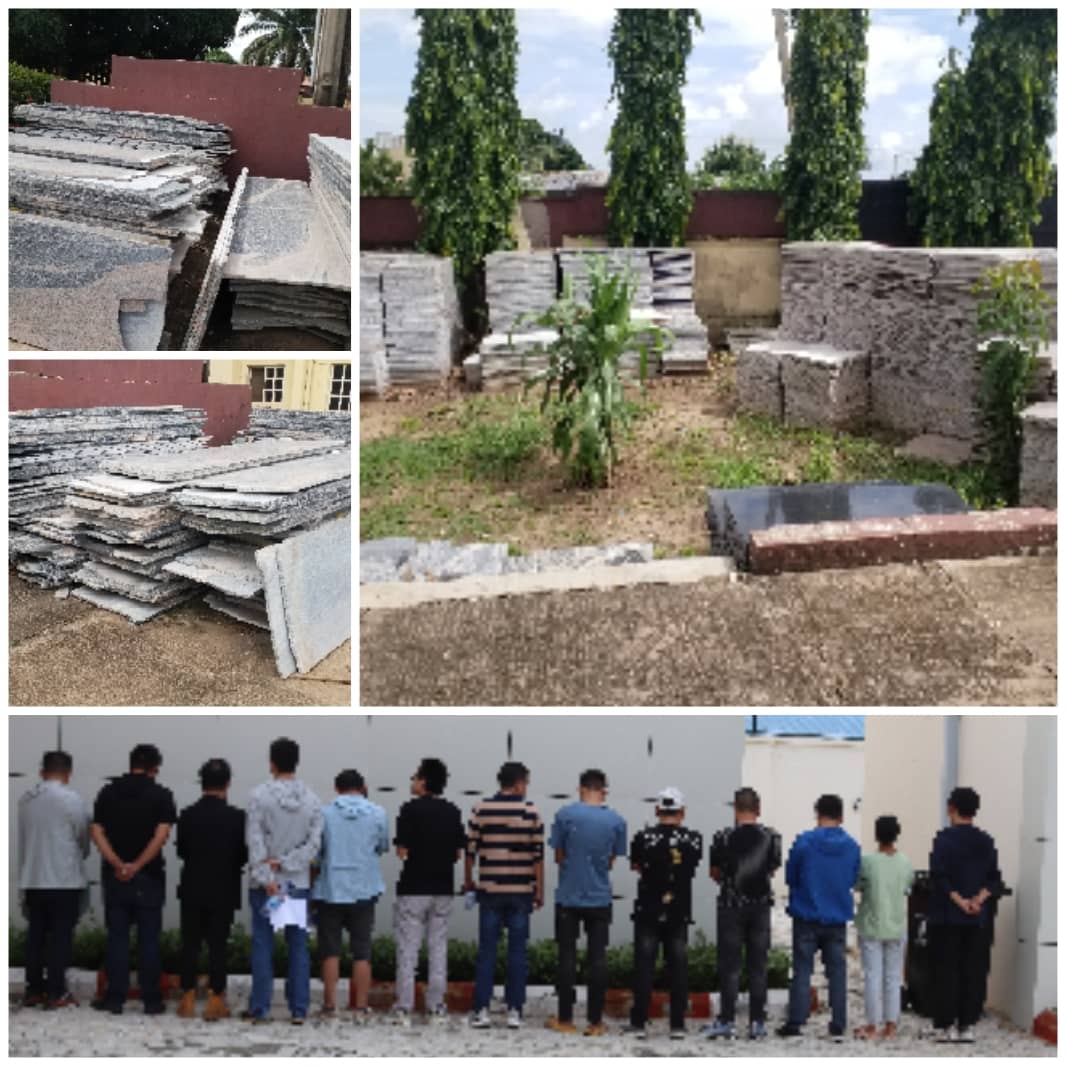Thirteen Chinese nationals have been apprehended by the Ilorin Zonal Command of the EFCC in Kwara State Nigeria for engaging in illegal mining activities.
Illegal mining has become a pressing issue in Kwara State, Nigeria, prompting the Ilorin Zonal Command of the Economic and Financial Crimes Commission (EFCC) to take action.
In a recent operation, 13 Chinese nationals were apprehended for their involvement in illegal mining activities. This illicit practice not only violates the law but also deprives the Nigerian government of much-needed revenue from royalties.
The suspects, consisting of one female and twelve males, were taken into custody on Wednesday, July 12, 2023. The arrests were the result of credible intelligence received by the EFCC regarding their activities, which included illegal mining operations and failure to pay royalties to the Federal Government, as mandated by the law. These offences are in direct contravention of Section 1(8) (b) of the Miscellaneous Offences Act Cap M17, 1983.
The identities of the suspects are as follows: Guo Ya Wang (36), Lizli Hui (42), Guo Jian Rong (36), Lizh Shen Xianian (37), Lishow Wu (26), Guo Pan (38), Lia Meiyu (53), Guo Kai Quan (36), Lin Pan (50), Ma Jan (38), Wendy Wei Suqin (31), Li Zhinguo Wei (29), and Xie Zhinguo (53).
Preliminary investigations into illegal mining operations in Kwara State had already revealed the existence of multiple illegal mining sites across all 16 Local Government Areas of the state. The EFCC had been discreetly gathering information on these activities before apprehending the Chinese nationals.
During interrogations, the suspects admitted to being employees of a Chinese company known as W. Mining Global Service Limited, situated in Olayinka, Ifelodun Local Government Area of Kwara State. Shockingly, it was discovered that the company was utilizing the illegally mined granite to produce marble for local sales in Nigeria. Additionally, some of the suspects had entered Nigeria without the necessary work permits, only possessing visitor’s visas.
The investigations are ongoing, and upon their conclusion, the suspects will be arraigned in court to face the full consequences of their actions. This marks a significant step in the EFCC’s relentless efforts to combat illegal mining in Nigeria and protect the nation’s economy.
It is worth noting that the Acting Executive Chairman of the EFCC, Abdulkarim Chukkol, expressed his concerns about the detrimental impact of illegal mining on both the local and national economy during a media training for journalists in Kwara State on July 6, 2023. He emphasized the seriousness of this issue and the agency’s determination to dismantle the networks of illegal mining operators across the country.
The Ilorin Zonal Command of the EFCC has made significant progress in curbing this menace.
Over the past eight months, they have successfully apprehended more than 80 illegal mining operators, resulting in the impoundment of 24 truckloads of assorted minerals.
Their previous success includes the arrest of Dang Deng, a Chinese national and managing director of Sinuo Xinyang Nigeria Ltd, on September 10, 2022. Deng was found in possession of 25 tons of various crude minerals and was subsequently convicted on October 19, 2022, by Justice Mohammed Sani of the Federal High Court, Ilorin.
The EFCC said its dedication to eradicating corruption and dismantling illegal mining operations remains unwavering.
EFCC insisted they will continue to pursue these criminals and ensure that the law is upheld, safeguarding Nigeria’s natural resources and economy.










